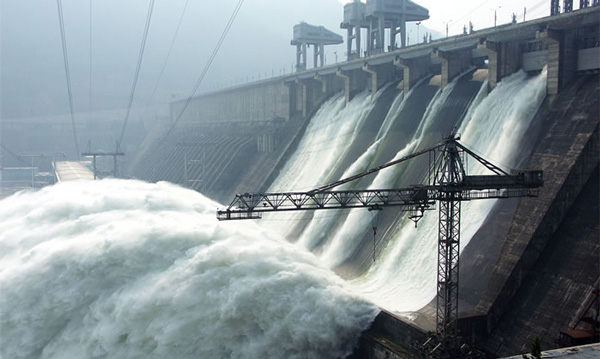
Montreal — A group of 11 leading energy utilities from around the world have published a major new report detailing how 50 electricity technologies could play a role in meeting international climate change targets.
greenbiz.com
The 68-page report has been developed by the Montreal-based Global Sustainable Electricity Partnership (GSEP) and is designed to provide negotiators at the upcoming Paris summit with a reminder of the crucial role a power sector that accounts for a quarter of global carbon emissions will have in tackling climate change.

GSEP is backed by American Electric Power, EDF, Eletrobras, ENEL, EuroSibEnergo, Hydro-Québec, Iberdrola, Kansai Electric Power Company, RusHydro, RWE and State Grid Corporation of China, which together delivered around one-third of the world’s electricity last year, of which about 60% was generated with no direct CO2 emissions.
According to International Energy Agency estimates, global electricity-related carbon emissions intensity will have to fall by 90% by 2050 if the world is to limit temperature rises this century to 2 °C. The agency also has said such a drastic reduction in emissions will require $20 trillion of investment in the power sector through 2040. The GSEP report, Powering Innovation for a Sustainable Future, argues these emissions goals can be met through a combination of existing and emerging technologies.
The report examines 25 electricity generation technologies, 11 systems technologies such as smart grid innovations and energy storage systems and 14 energy use technologies, such as more efficient lighting. It concludes there is room for a significant expansion in the use of low carbon technologies.
For example, it notes current global hydropower production only exploits one-third of economically viable hydropower resources and also highlights how “onshore wind power is already competitive in high-wind regions without any direct support mechanism” even before the imminent cost reductions that will result from future technological innovation are taken into account.
- Chamisa under fire over US$120K donation
- Mavhunga puts DeMbare into Chibuku quarterfinals
- Pension funds bet on Cabora Bassa oilfields
- Councils defy govt fire tender directive
Keep Reading
Similarly, the report details how optimising solar manufacturing plant design and progress in converters to enhance the performance of PV systems could bring the cost of ground-mounted PV systems down to $1 per Watt-peak (Wp), “substantially enlarging the scope for the development of PV power.” And it predicts new generation nuclear reactors could be available by the 2040s, adding that “future fourth-generation fast neutron reactors, which use fuel far more efficiently, will supplant the current technologies.”
The report is accompanied by an open letter to the Paris negotiators from the 11 electricity providers, arguing that a supportive and stable international policy environment will help accelerate the rollout of clean technologies.
“Energy efficiency and technological innovation in the electricity sector are essential to both reduce emissions and improve the quality of life of citizens around the world,” the letter stated. “COP21 policymakers are well-positioned to help accelerate the development and deployment worldwide of energy efficiency measures and of innovative technologies with effective policies.”
It also sets out a plan arguing any Paris Agreement should embrace four core principles that will help drive the deployment of clean technologies: a commitment to deliver “secure, stable, clear, consistent and long-term policies”; a systemic approach to decarbonising electricity systems; the promotion of public-private partnerships; and urgent progress on clean tech R&D.
“Together, we are leading the way in the global effort to avoid, and reduce carbon dioxide emissions by optimising technologies in the right mix, amount, time and place,” the letter stated.
“By systematically optimising and applying the full portfolio of advanced technologies as they become commercially available, we believe that sustainable progress can be made over time to help meet global climate challenges”.











